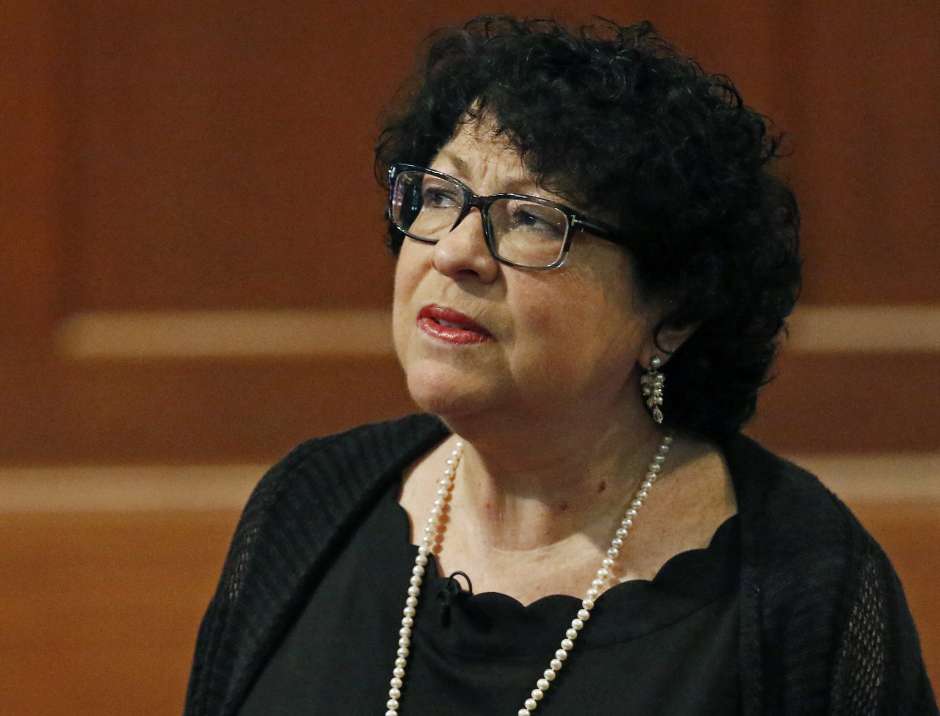
Justice Sotomayor condemns ruling that allows religious services without capacity limit
The court said the restrictions violate religious freedom. But dissenting Judges say that’s not what it’s about.
In a 5-4 vote, the Supreme Court blocked restrictions on religious services that Gov. Andrew Cuomo (D-NY) introduced in October to mitigate the spread of COVID-19.
Cuomo’s order restricted the number of worshippers at religious services depending on the rate of infection.
In the case of Roman Catholic Diocese of Brooklyn v. Andrew M. Cuomo, the majority found that Cuomo’s restrictions violated the First Amendment via a suppression of religious freedom. Justice Neil Gorsuch wrote that it was unconstitutional to have laws regulating churches and synagogues while allowing liquor stores and bike shops to reopen.
The court further explained that the order fails at neutrality, and singled-out houses of worship.
Justices ruling in favor of the suing churches and synagogues used the example that although a synagogue or a church in a red zone is limited to 10 people at a service, there exist no limits on the capacity an “essential” business can admit.
Clarence Thomas, Samuel Alito, Neil Gorsuch, Brett Kavanaugh and Amy Coney Barrett — each conservative judges — sided with the religious groups and blocked Cuomo’s attendance limits.
Chief Justice John Roberts, along with Justices Stephen Breyer, Sonia Sotomayor and Elena Kagan, dissented, representing a clear shift within the court since Barrett replaced Justice Ruth Bader Ginsburg, following a rushed confirmation brought-on by Ginsburg’s death.
Sotomayor had a few choice words in her dissent on the high court’s ruling.
By 5-4 votes (with Justice Barrett in the majority and the Chief dissenting) #SCOTUS has enjoined NY’s limits on in-person religious services pending appeals by Catholic and Jewish houses of worship:https://t.co/3JCttByeDs
— Steve Vladeck (@steve_vladeck) November 26, 2020
Justice Sotomayor’s dissent gets right to the point: pic.twitter.com/5bJeCoCgFA
She, joined by Kagan, determined the block on restrictions “will only exacerbate the Nation’s suffering.”
RELATED CONTENT
In her dissent, Sotomayor took aim at Gorsuch’s comparison of religious institutions to liquor stores and bike shops, reasoning that people don’t gather inside for more than an hour to sing and speak to each other.
Therefore, she reasoned that one is more risky. Sotomayor’s perspective is that by siding with the religious organizations, the Supreme Court is holding them to higher favor than those susceptible to contract the virus.
She wrote that she considered Cuomo’s COVID-19 actions reasonable and legally sound.
“The Constitution does not forbid states from responding to public health crises through regulations,” Sotomayor wrote.
As a catholic herself, to side with Cuomo’s decision, Sotomayor emphasized that religious freedom isn’t what’s at stake. It’s the lives of millions who will be put at risk at the busiest time of the year for Churches and synagogues.
“Free religious exercise is one of our most treasured and jealously guarded constitutional rights. States may not discriminate against religious institutions, even when faced with a crisis as deadly as this one,” Sotomayor wrote. “But those restrictions are not at stake today.”











LEAVE A COMMENT:
Join the discussion! Leave a comment.